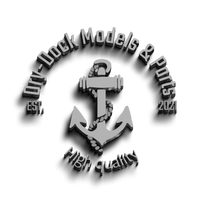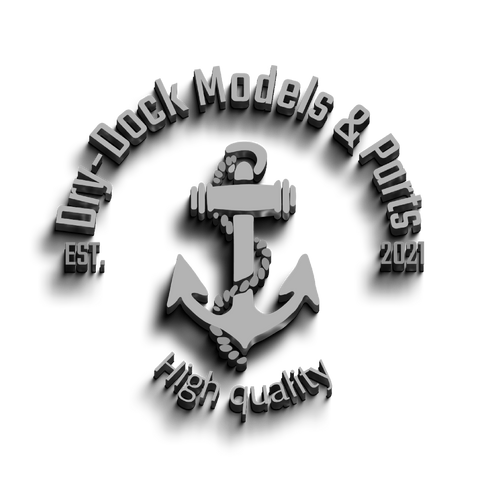Hayling Hoy 1760 1:48 - CHERRY WOOD VERSION
Shipping is included in the total price!! Please allow 14 - 21 days to fulfill the order!!
The product is shipped from China!!
Dimensions
- Scale: 1:48
- Length Overall: 675.5mm
- Height Overall: 653mm
- Width Overall: 341mm
- Width of Hull (only): 135mm
- Length of Hull (only): 488mm)
- Level: Intermediate to Advanced
Hoy
Hoy is a relatively small offshore sailing ship. Most of these ships are single-masted and weigh about 20-70 tons. Most of them were sloop rigged and the mainsail could be fitted with or without a boom. These ships were favored by merchants and the Royal Navy and were used for various jobs. Some were specially built to transport fresh water, gunpowder, or ballast. Others are used for tax services, or for laying buoys or measuring work. Of course, the most common job is to transport passengers and goods. These ships are like taxis. Passengers on the shore can shout "ahoy there!" to stop these ships, so the ship type "Hoy" is also named.
We used the high-resolution scanned drawings preserved by the National Maritime Museum as the base of design to ensure the accuracy of the kit. Combined with dozens
of relevant ship type drawings, a large number of books, and relevant models, we were able to restore most of the details of the ship.
Hayling 1760
As a 66-foot flat hoy, Hayling is one of the larger ships of its kind. The ship was built in a small shipyard near the famous Portsmouth Harbour in Britain. The ship's name Hayling also comes from Hayling Island next to Portsmouth Harbour. It is mainly used to transport timber between ports so it has a hatch.
Enjoy the lovely POF
The technique of skeleton construction is much closer to the way in which wooden ships were actually built. The frames of the hull are cut to shape, both on the outside and the inside, and are assembled in the correct position of the keels, The frames are held together by a small amount of planking, usually the thicker parts known as ‘wales’.
Plank-on-frame, as represented by the classic “navy board” model of the late seventeenth and early eighteenth centuries, is a development of the early type of skeleton model. By about 1670 it became common to show the planking between and above the wales so that the model was relatively realistic above the waterline. As time progressed, the modern POF models also restored the patterns of the ribs in order to pursue better results. As the most realistic ship model form, the POF model has high difficulty, but it also has a good completion result.
Kit content
1 Basic hull (all cherry wood )
1.1 Platform
1.2 Keel
1.3 Frames
1.4 Bow
1.5 Stern
2 Ex&Interior (all cherry wood )
2.1 Supports
2.2 Beam&Carlings
2.3 Planking&Deck
3 Fitting, high-quality pearwood rigging blocks
4 Mast, yards (cherry wood), and standing rigging
5 Running rigging & Sail rigging
5.1 Running rigging
5.2 Sail rigging

















